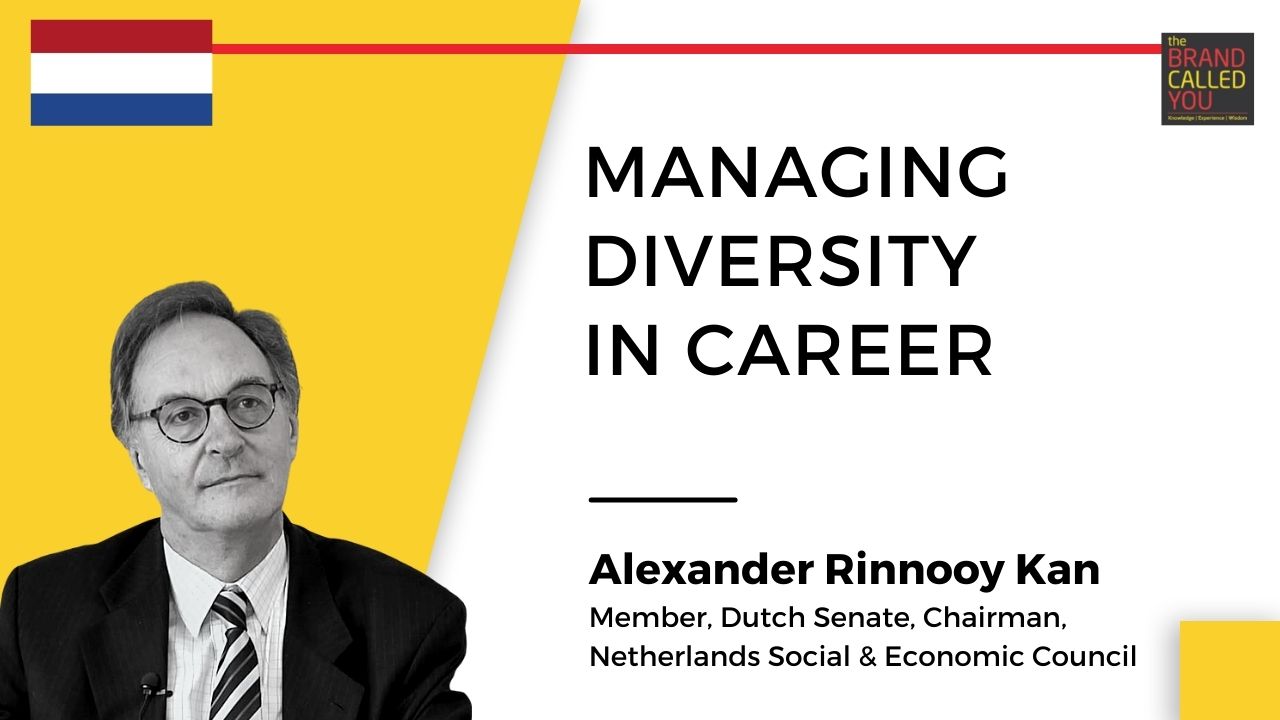Alexander Rinnooy Kan, Member, Dutch Senate, Chairman, Netherlands Social & Economic Council
Alexander Rinnooy Kan (1949) grew up in The Hague the same year, he acquired a Candidate’s degree in Econometrics at the University of Amsterdam. He graduated in Mathematics from the University of Leiden in 1972.
Podcast
Overview
Building a good career requires passion, hard work, and life. One needs to focus extensively to understand the field well. People keep working in the same field all their lives which is also coherent. But our guest for today, Mr. Alexander Rinnooy Kan, is one of those who not only shift their careers after some time but also manage all of them simultaneously.
Alexander is in academia, is a renowned board member, and also has political roles. He successfully manages all the roles simultaneously.
Alexander Rinnooy Kan is a member of the Dutch Senate. He is the chairman of the Netherlands Social and Economic Council. He is a Board Member of the ING Group Executive. He is an emeritus professor at the University of Amsterdam.
How does Alexander move between academics and board rooms? What are some of his challenges and learnings?
On being asked how he manages to move between academics and board rooms, Alexander tells us that he believes that luck is also a factor to be in a position like this. However, he advises the people who aspire to have similar experiences like his not to be afraid of things. He suggests letting unexpected things come to life and relying on the good judgements people make for you.
Alexander tells us that he was also surprised when things emerged to him. As he was in academia, working as the Director for the University of Rotterdam, he was offered to succeed the President of the Dutch Employers Federation. The role he was expected to play there was very different from what he was doing in academia. He wasn’t sure whether to take the role or not but later took it believing the people who offered him the role. Like this things kept emerging and Alexander did not back down to it.
Alexander’s Academic Journey
Alexander tells us that while he was in secondary school, his favorite subject used to be history. At the age of 16, he got in touch with a person who changed his life. It was his mathematics teacher, who wasn’t really friendly, but extremely good professionally. He used to help and educate the interested students a little more than what they needed. Alexander was impressed by it and changed his subject to mathematics. He finished his Ph.D. in pure mathematics studying algebra and geometry. For appointment purposes, his documents were sent to the Ministry of Education, and the next day the MoE froze the appointments for all the Dutch Universities. Alexander could not escape the situation so he had to move to applied mathematics and econometrics. He tells us that he doesn’t regret it, in fact, he feels that applied mathematics and econometrics took him closer to the real world.
About the Netherlands Social and Economic Council
Alexander tells us that Netherlands Social and Economic Council is more like a tradition to him which he is proud of. He tells us that it has a very long history.
In the middle ages, Europe was the domain of the fierce power struggles between two parties, Feudal Lords and Emerging Cities. But in the lower countries like the Netherlands, both of them shared equal power. So instead of fighting, they decided to co-operate as they also realized after some time that they actually need each other for power and money. After some centuries, the Netherlands became the most prosperous country in the world. A few centuries later, when industrial development occurred, the tension between employers and trade unions rose. But in this Dutch tradition realized that instead of having a power struggle, they might as well work together. This spirit of collaboration is still there when the government wants to make a social-economic decision, it will call the Social and Economic Council which can act as an advisory to the government that unites both parties.
More about Alexander Rinnooy Kan:
Talking about the moments that changed his life, Alexander tells us that first when he met his Mathematics teacher, he decided to change his subject. Secondly, when he moved to business and political roles, that was a turning point in his life. Lastly, when his first child was born, it created a positive change in his life.
Profile
Alexander Rinnooy Kan (1949) grew up in The Hague. He graduated in Mathematics from the University of Leiden in 1972. In the same year, he acquired a Candidate’s degree in Econometrics at the University of Amsterdam.
From 1973 to 1977 he taught mathematics and statistics at Delft University of Technology. During that period, in 1976, he obtained his Ph.D. in Mathematics at the University of Amsterdam.
Between 1977 and 1991 Rinnooy Kan held senior academic positions at Erasmus University Rotterdam and other European and American universities. He was rector magnificus of Erasmus University from 1986 to 1989.
As Chairman of the Confederation of Netherlands Industry and Employers (VNO-NCW), a post he held from 1991 to 1996, Rinnooy Kan was one of the main representatives of Dutch business. He was a member of the ING Group Executive Board from 1996 to 2006.
Rinnooy Kan has been Chairman of the Netherlands Social and Economic Council from 2006 to 2012 and a member of the Dutch Senate from 2015 to 2019. From 2012 to 2019 he was appointed as Distinguished University Professor at the University of Amsterdam, his current position is Emeritus Professor at the University of Amsterdam.


